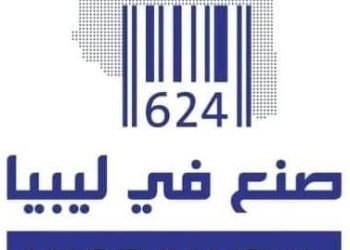By Libya Herald reporter.

Tunis, 12 November 2015:
The Tripoli-based Central Bank of Libya (CBL) defended its performance as a financial institution during . . .[restrict]Libya’s current financial crises caused mainly by the fall in oil production and the crash in international crude oil prices.
In a lengthy response to criticism on social media the CBL responded to accusations that it has not been effective in defending the FX rate of the Libyan dinar nor that it had taken action against the currency black market.
The CBL rejected claims that the loss of value of the LD were caused mainly by a loss of confidence in the LD. It maintained that the strength of a state’s currency comes from its foreign currency reserves.
It pointed to the fact that the LD – US$ rate up to the 1970’s was about US$ 1 – LD 0.30 and at the end of the 1980’s and the beginning of the 1990’s it had peaked at about US$ 1 – LD 3.50 and furthermore, during the revolution in 2011 it had reached US$ 1 – LD 1.90.
After liberation in October 2011 the exchange rate came down to US$ 1 – LD 1.30 within a week which was nearly the equivalent to the official exchange rate. This, the CBL maintained, shows that it was not as a result of confidence but as a result of the availability of hard currency.
Countering another accusation, the CBL denied that it has been forever turning a blind eye to the currency black market. It pointed out that it had acted forcefully against the black market in the week after liberation (from Qaddafi) in 2011.
This action proves that the LD exchange rate was based on foreign reserves and not on confidence. This is especially so for Libya, the CBL argued, a country that depends on 95 percent of its GDP from oil revenues and depends on more than 70 percent of its daily consumption on imports.
With regards to the CBL’s failure to allow official foreign exchange bureaux to start operating despite the law for such FX bureaux having been passed, the CBL revealed that it could not activate the bureaux because there has been a ban in place prohibiting the export of foreign currency to Libya since December 2013.
The CBL also countered the accusation that it had failed to prevent the unprecedented ballooning of the state budget and failed to control the expansion of state-sector salaries within it as well as running an annual budget deficit.
It highlighted the fact that the drafting of the budget was the responsibility of the executive (the government) and its approval is the responsibility of the legislature (parliament).
Its role, it points out, is advisory and consultative, pointing out to a number of official financial statements and warnings including its latest statement on the country’s finances up to 30/09/2015.
The CBL also strongly denied any responsibility to the accusation that it had contributed to the opening of a large number of corrupt documentary letters of credits (LCs). It countered that its role and powers together with commercial banks are defined and limited by existing laws and byelaws.
Nevertheless, in its effort to counter corruption in LCs it had referred to the Public Prosecutor’s Office cases totalling more than LD 4 billion in value for the years 2012-2015. The CBL also claimed that it had stopped money to successive governments from 2011 until today in the billions of dinars.
The CBL also countered that the accusation that the current low rate of oil production of around 300,000 b/d does not reflect on the FX rate of the Libyan dinar. It also refuted the accusation that it is unwilling to use its foreign currency reserves to bolster the LD FX rate.
The CBL pointed out that Libyan oil production had peaked at 1.6 million bpd in 2012 and that at a price of about US$ 100 / b that used to earn Libya around US$ 58 billion per year. However, with Libya’s oil production at around only 300,000 b/d this (at US$ 100 / b) would only earn Libya around US$ 11 bn still leaving a shortfall of US$ 47 bn.
Moreover, with the price of international crude oil prices crashing to around US$ 40 / b Libya would only earn US$ 23 bn per year even if it were to produce its peak production capability of 1.6 million b/d.
However, in reality Libya is only exporting around 300,000 b/d which would earn it around US$ 4 bn, whereas it is consuming around US$ 25 bn. To this the CBL asks the rhetorical question: Where does the power of the Libyan dinar lie, in market confidence or in Libya’s hard currency reserves?
In concluding, the CBL maintained that it is one of the very few Libyan institutions to maintain its professional performance with transparency, responsibility and courage, despite the difficult circumstances it operates in. [/restrict]








